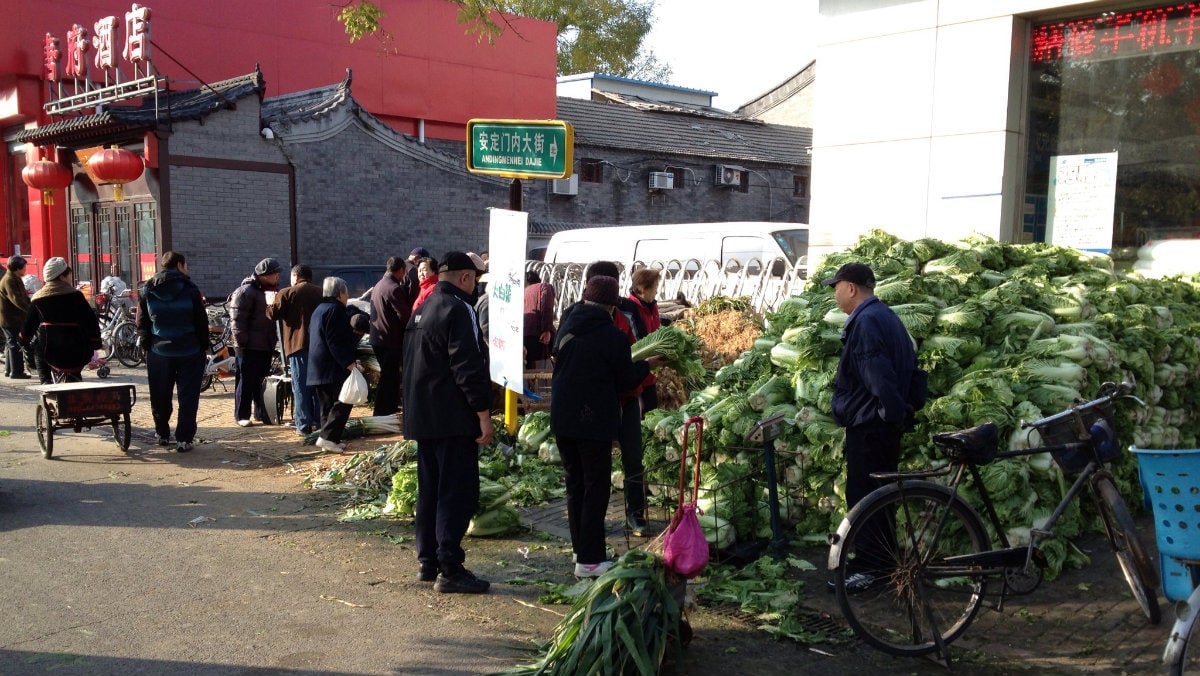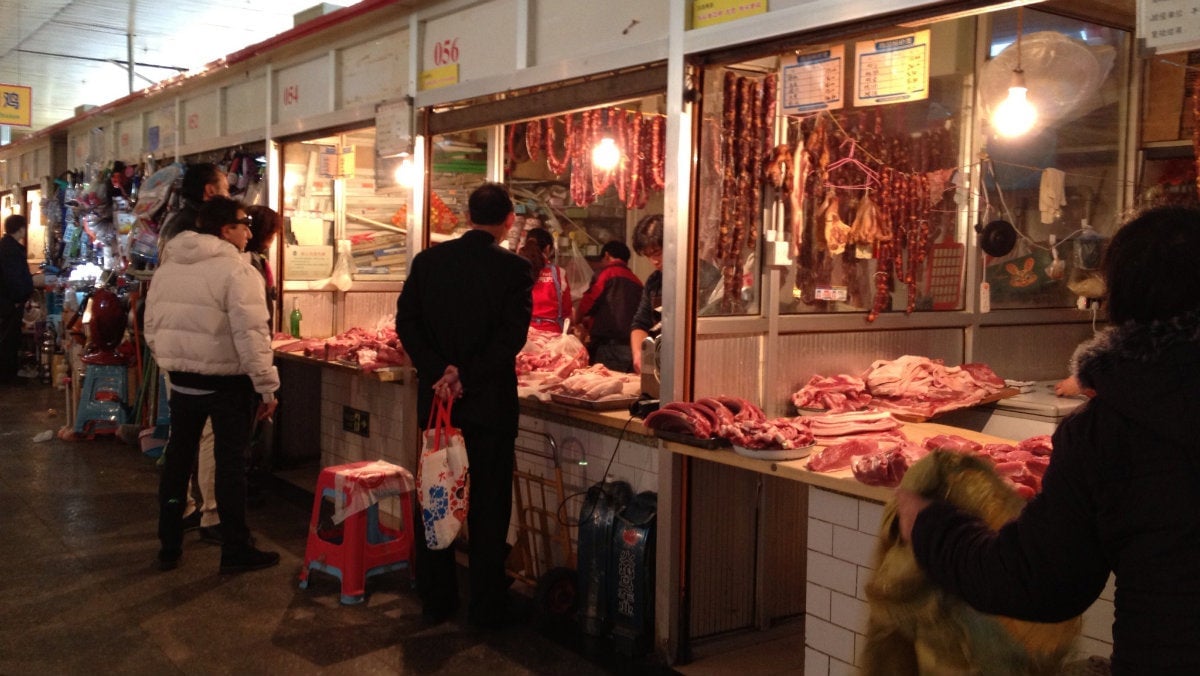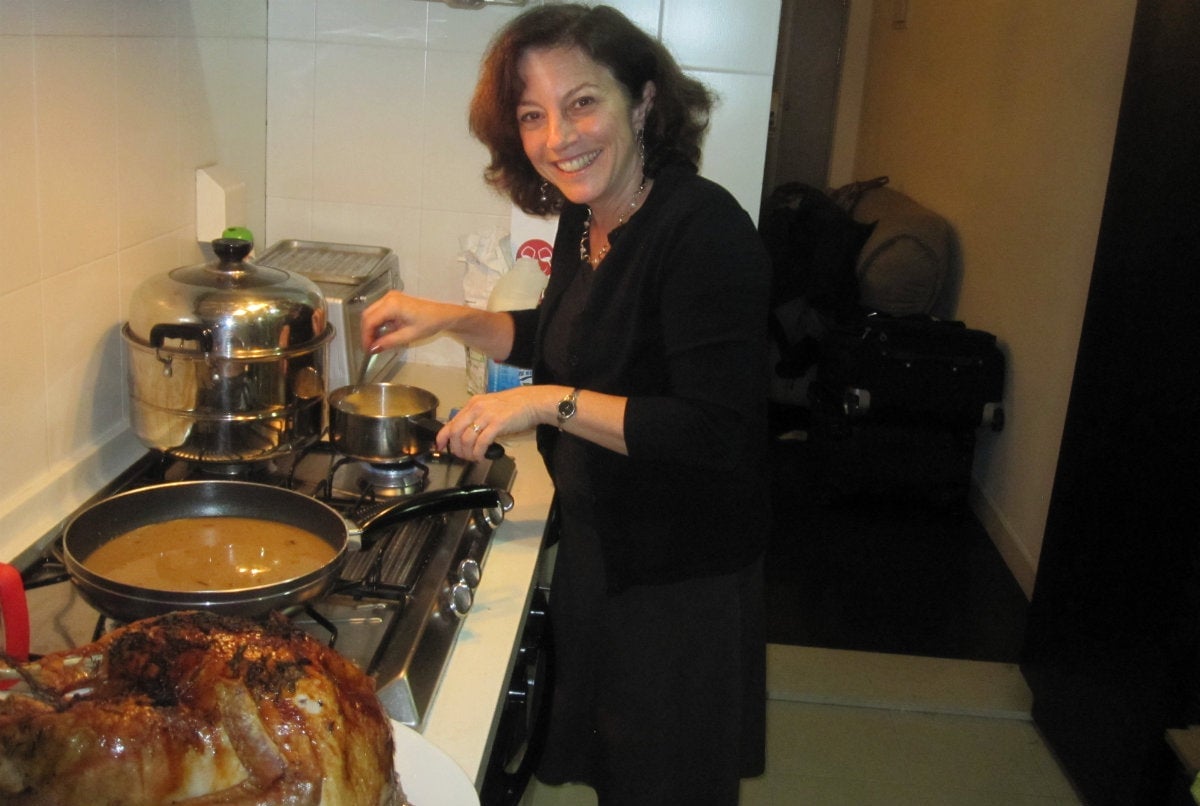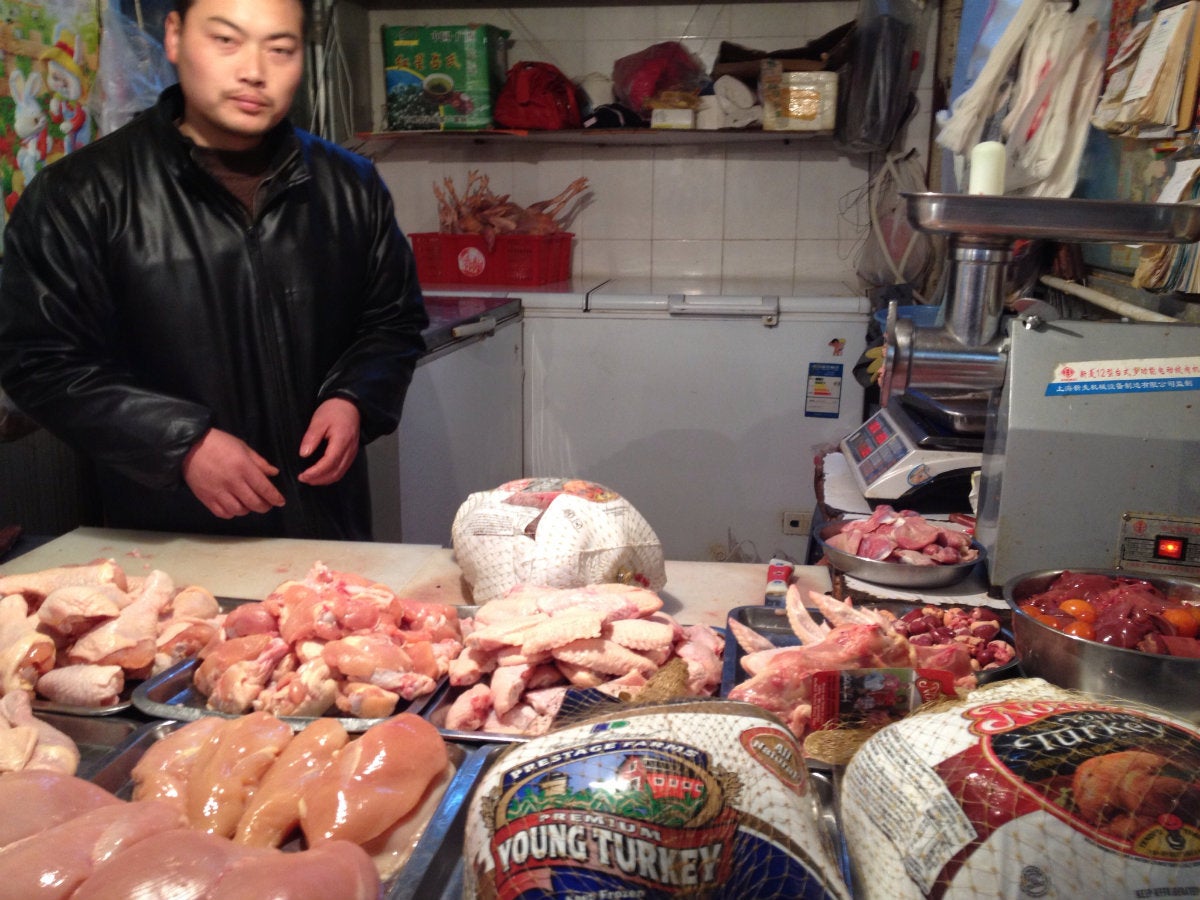Frozen turkey from Utah, canned pumpkin from Mexico: My all-American Thanksgiving in China
An expat lifestyle almost by definition involves a certain amount of time and energy spent searching for the things of home in the sometimes-futile attempt to build a buffer against the strangeness. My husband and I happen to live in an expat-friendly part of Beijing, inside an apartment complex that hosted a Halloween party this year and that puts gaudy Christmas decorations in the lobby of the health club.

An expat lifestyle almost by definition involves a certain amount of time and energy spent searching for the things of home in the sometimes-futile attempt to build a buffer against the strangeness. My husband and I happen to live in an expat-friendly part of Beijing, inside an apartment complex that hosted a Halloween party this year and that puts gaudy Christmas decorations in the lobby of the health club.
But Beijing is still foreign enough—old men with only a couple of teeth spit on the sidewalk, courtyard homes have no indoor plumbing, bent-over women in Mao jackets pick through winter cabbages piled up in a mountain on the sidewalk—that I find it important to recreate an all-out, old-fashioned, all-American Thanksgiving.
And so the search begins, like a scavenger hunt that requires a Keatsian negative capability: “when a man is capable of being in uncertainties, mysteries, doubts, without any irritable reaching after fact and reason.” You’d think Keats had lived in Beijing. As for me, I see it as a lesson in flexibility. If I can’t find fresh cranberries, the dried ones will do. If I can’t get on my Gmail because the internet is blocked or slow, I’ll read a book. If I can’t jog outside because the air pollution is bad, I’ll run on the treadmill and watch 16 and Pregnant on my iPad.
Irritability aside, Americans in Beijing have a few decent options when they try to prepare their Thanksgiving feasts. It wasn’t too many years ago, says one expat, when the only vegetable available in the winter was cabbage. Today there are expat supermarkets named April Gourmet, Jenny Lou’s, and City Shop, places where one might find unsalted butter (Suki butter, “made in U.S.A.” with “real California milk”) and Ocean Spray cranberry sauce, plus Libby’s “100% pure PUMPKIN,” with the nutrition facts (datos de nutricion) listed in both English and Spanish, making me wonder how meandering a trip this unassuming little can has made to arrive at my Beijing table. I paid 24 RMB for it, which is $3.84. Not cheap, and I could have just bought fresh pumpkin and made it myself, but there’s something Thanksgiving in buying the can.

And then there are wet markets liked the famed Sanyuanli. Sanyuanli is not for the squeamish. It’s a covered market with more than 100 different stands, including a few small hardware stores, an entire section specializing in tofu, a couple of pricey imported food stands with peanut butter and coffee, a meat area, a fish area, fruit, and vegetables. I’ve learned that if I want to snack on one of the delicious spinach-filled steamed buns sold between the fruit area and the meat area, I need to plant myself and eat that bun (1 RMB, or 16 cents) on the spot. Otherwise, I find myself chewing as I stare face to face with the ghostly white head of a goat or enormous pigs’ feet or chicken carcasses, with head and feet still attached, splayed on an unrefrigerated counter. Add in the smell of almost-gone meat and fish tanks crawling with hairy crabs, and it’s certainly better to point yourself in the direction of the mangosteens.

Last year, our first Thanksgiving in China, I stuck to the basics. I had been scarred by a previous expat experience, the Thanksgiving of 2001 in Brussels, where Americans had to know a guy, an evasive fellow who could supply turkeys out of the back of his dry cleaning shop like a drug dealer. But what last year lacked in creativity was made up for in quantity, with mashed potatoes, stuffing, gravy, turkey, cranberry sauce, pumpkin pie, apple crisp—a mountain of food for five people, three of them flyweight young women who barely made a dent in the feast.

This year I wanted to venture into new territory. I’ve found a recipe for a salad with pomegranate seeds, roasted acorn squash, and beets. If you substitute miniature pumpkins for acorn squash, the ingredients are available. I also learned that the poultry sellers had turkey, imported from America.
So I ventured to the market today, tugging my purple-flowered wheeled cart, and headed straight for a row of rock-hard frozen turkeys and a sign that said “American turkeys.” I picked out one that was partially thawed, figuring it had a better chance of being defrosted for Thursday and hedging against one that was fully thawed and had been sitting on the counter for a couple of days.
The one I picked has to serve 12 guests, although one of them is a vegetarian, one is a two-year-old who will probably be happy with grapes, and one an infant not yet attuned to the joys of Thanksgiving gluttony. I paid a whopping 330 RMB, or about $53–cheaper than an organic, free-range Whole Foods bird, but still pricey for a turkey that weighs less than 15 pounds. The source of turkeys: Norbest, a turkey cooperative based in Utah and Nebraska. It does fit in my oven, which is the size of a generous microwave. I just can’t make anything else at the same time.

My quest to find shortening ended with a purchase of a brick of white fat. Crisco it ain’t, and I’m not sure I want to delve too deeply into what sort of rendered fat they sold me. Let’s just hope the pie crusts don’t smell like bacon.
I did find a pomegranate, baby pumpkins, beets, parsnips, baby carrots, fresh thyme, fresh rosemary, potatoes, walnuts, almonds, lemons, garlic, romaine lettuce, chives, baby onions, red onions, and apples. I jumped in a cab home, which set me back 11 RMB—$1.76.
Then I picked up butter and Parmesan cheese for the potatoes gratin and heavy cream for the pumpkin pie at April Gourmet, spending nearly as much on dairy ingredients as I did for all the vegetables combined. Overall, though, I’d say I have a good feeling about our Chinese Thanksgiving feast. Although there are days when China defeats me, today it felt more as if I have a cornucopia of a buffer against China’s uncertainties and mysteries.